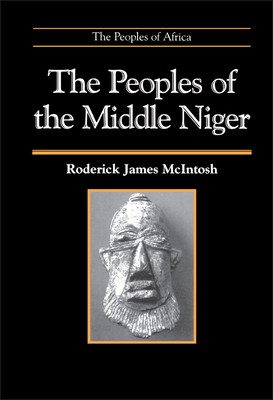
- We will send in 10–14 business days.
- Author: Roderick J McIntosh
- Publisher: Blackwell Publishers
- ISBN-10: 0631173617
- ISBN-13: 9780631173618
- Format: 15.8 x 23.6 x 2.7 cm, kieti viršeliai
- Language: English
- SAVE -10% with code: EXTRA
Reviews
Description
The Peoples of the Middle NigerThis book provides the first comprehensive history of the peoples of the Middle Niger written by an English-speaking scholar. 'The Island of Gold' was the medieval Muslim and later European name for a fabled source of gold and other tropical riches. Although the floodplain of the Niger river lies far from the goldfields, the mosaic of peoples along the Middle Niger created a wealth of grain, fish, and livestock that supported some of Africa's oldest cities, including Timbuktu. These ancient cities of the region that came to be known as Western Sudan were founded without outside stimulation and their inhabitants long resisted the coercive, centralized state that characterized the origins of earliest towns elsewhere.
In this book, Roderick James McIntosh uses the latest archaeological and anthropological research to provide a bold overview of the distant origins of life for the inhabitants of the Middle Niger, and an explanation for their social evolution. He shows, for instance, the difficulties the peoples faced in adapting to an unpredictable climate, and how their particular social organization determined the unusual nature of their responses to that change. Throughout the book oral traditions are integrated into the story, providing vivid insights into the inhabitants' complex culture and belief systems.
EXTRA 10 % discount with code: EXTRA
The promotion ends in 22d.01:52:47
The discount code is valid when purchasing from 10 €. Discounts do not stack.
- Author: Roderick J McIntosh
- Publisher: Blackwell Publishers
- ISBN-10: 0631173617
- ISBN-13: 9780631173618
- Format: 15.8 x 23.6 x 2.7 cm, kieti viršeliai
- Language: English English
This book provides the first comprehensive history of the peoples of the Middle Niger written by an English-speaking scholar. 'The Island of Gold' was the medieval Muslim and later European name for a fabled source of gold and other tropical riches. Although the floodplain of the Niger river lies far from the goldfields, the mosaic of peoples along the Middle Niger created a wealth of grain, fish, and livestock that supported some of Africa's oldest cities, including Timbuktu. These ancient cities of the region that came to be known as Western Sudan were founded without outside stimulation and their inhabitants long resisted the coercive, centralized state that characterized the origins of earliest towns elsewhere.
In this book, Roderick James McIntosh uses the latest archaeological and anthropological research to provide a bold overview of the distant origins of life for the inhabitants of the Middle Niger, and an explanation for their social evolution. He shows, for instance, the difficulties the peoples faced in adapting to an unpredictable climate, and how their particular social organization determined the unusual nature of their responses to that change. Throughout the book oral traditions are integrated into the story, providing vivid insights into the inhabitants' complex culture and belief systems.


Reviews